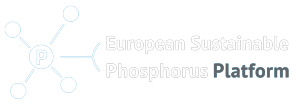Researchers at KWR Netherlands have found gene fragments of the Covid-19 virus in wastewater entering a sewage works, with repeated tests confirming the results. The virus gene fragments were not detected in the sewage works effluent (treated water), but only one site was tested, and sewage sludge was not tested. Although the tests do not discriminate between potentially active virus and inactive fragments, it is underlined that the results do not indicate that Covid-19 infection is possible from sewage. Workers in contact with wastewater should in any case use protective equipment, because of other health and safety risks in handling wastewater, and the water industry underlines that this should be reinforced. The World Health Organisation briefing on Covid-19 in water and sewage (19th March) can be summarised as follows: there is no proof for this the Covid-19 virus, but it has a fragile outer membrane and is likely to be more rapidly inactivated in sewage than other viruses which have been shown to survive for days to weeks in water or sewage (e.g. gastroenteritis, hepatitis). A new paper in Nature (published 1/4/20) found high virus RNA concentrations in faeces of nine Covid-19 patients, but no infectious virus in faeces, in urine nor in blood. The study concludes that there were indications of viral replication in the gut and that the absence of detected viable virus in faeces may be because the nine patients were mild cases, and none had diarrhoea (which occurs in maybe 2% of Covid-19 cases).
KWR press release “What we learn about the Corona virus through waste water research“ 24th March 2020
KWR Webinar “COVID-19: Significance and impact of the pandemic for the water sector”
WHO “Water, sanitation, hygiene, and waste management for the COVID-19 virus. Interim guidance” 19th March 2020
“Virological assessment of hospitalized patients with COVID-2019”, R. Wölfel et al., Nature, 1 April 2020
Corona Virus situation
Postponement of ESPC4 and PERM (4th European Sustainable Phosphorus Conference and European Phosphorus Research Meeting), Vienna 15-17 June 2020.
Given the development of the international corona virus situation, and after re-discussion with the venue hotel and the Belvedere Palace, we have decided to postpone ESPC4 and PERM to Vienna 31st May – 2nd June 2021.
All registrations will be transferred to the new date to be fixed. If this is not possible for the registrant, then partial reimbursement will be made (minus non-recoverable costs). All registrants will be directly updated of developments by email.
